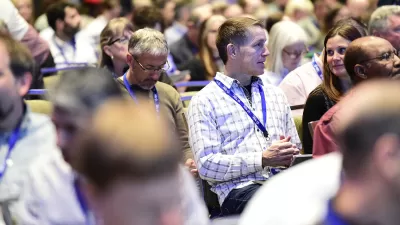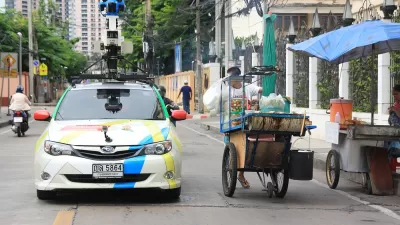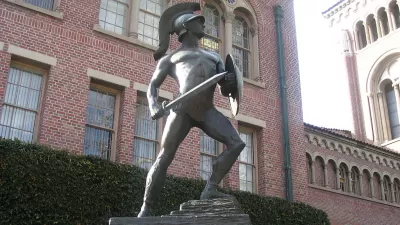There are two types of doctorate degrees in urban planning. Clement Lau, a Los Angeles County planner with one of them, explains the difference and why, with no plans to be a professor, he pursued one of these degrees.
A professional doctorate in urban planning is not a Ph.D. It's a relatively rare degree. The University of Southern California has a professional doctorate degree program, but even that program was only recently reinstated after being terminated for a few years. Ph.D.s are typically pursued by those who plan on careers as tenured professors in universities. In contrast, a professional doctorate or more formally, Doctor of Policy, Planning, and Development (D.P.P.D.), is designed more for the planning professional. However, in the planning profession, a master's degree unlocks access to the highest levels of the profession. So why would anyone in the planning profession pursue a D.P.P.D. degree? Well, in short, for the love of learning, writes Clement Lau, a Los Angeles County planner and holder of such a degree from USC's D.P.P.D. program. Lau goes on to explain his own experience in attaining the degree, and some of the options for those who might want to do the same.
FULL STORY: Becoming a Scholar-Practitioner in Urban Planning

Planetizen Federal Action Tracker
A weekly monitor of how Trump’s orders and actions are impacting planners and planning in America.

Maui's Vacation Rental Debate Turns Ugly
Verbal attacks, misinformation campaigns and fistfights plague a high-stakes debate to convert thousands of vacation rentals into long-term housing.

Restaurant Patios Were a Pandemic Win — Why Were They so Hard to Keep?
Social distancing requirements and changes in travel patterns prompted cities to pilot new uses for street and sidewalk space. Then it got complicated.

In California Battle of Housing vs. Environment, Housing Just Won
A new state law significantly limits the power of CEQA, an environmental review law that served as a powerful tool for blocking new development.

Boulder Eliminates Parking Minimums Citywide
Officials estimate the cost of building a single underground parking space at up to $100,000.

Orange County, Florida Adopts Largest US “Sprawl Repair” Code
The ‘Orange Code’ seeks to rectify decades of sprawl-inducing, car-oriented development.
Urban Design for Planners 1: Software Tools
This six-course series explores essential urban design concepts using open source software and equips planners with the tools they need to participate fully in the urban design process.
Planning for Universal Design
Learn the tools for implementing Universal Design in planning regulations.
Heyer Gruel & Associates PA
JM Goldson LLC
Custer County Colorado
City of Camden Redevelopment Agency
City of Astoria
Transportation Research & Education Center (TREC) at Portland State University
Jefferson Parish Government
Camden Redevelopment Agency
City of Claremont





























